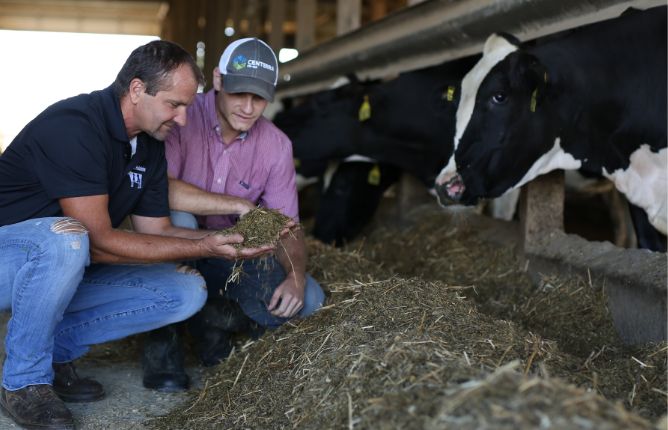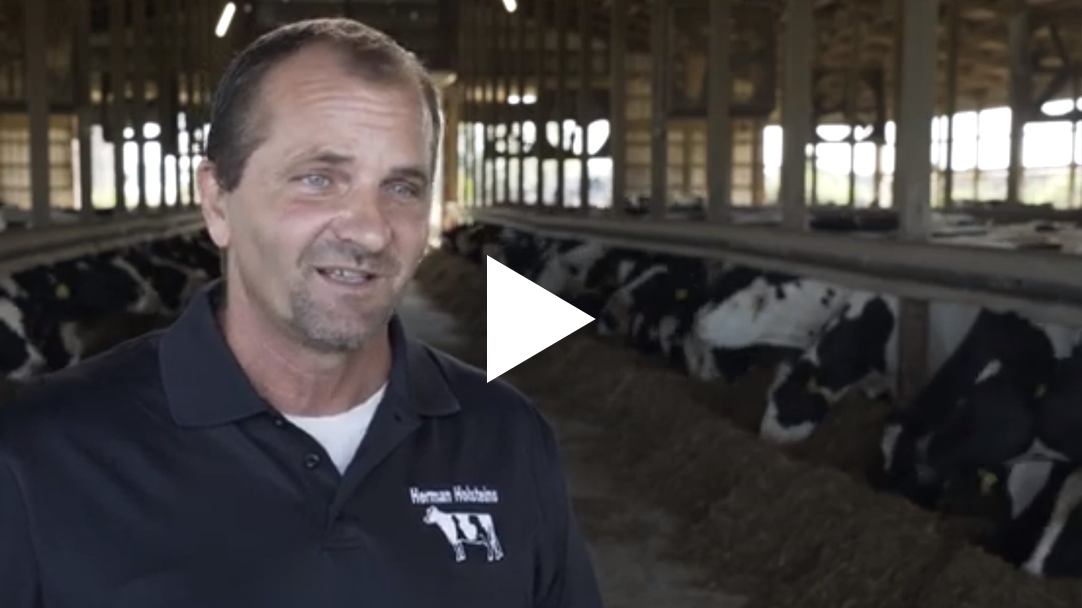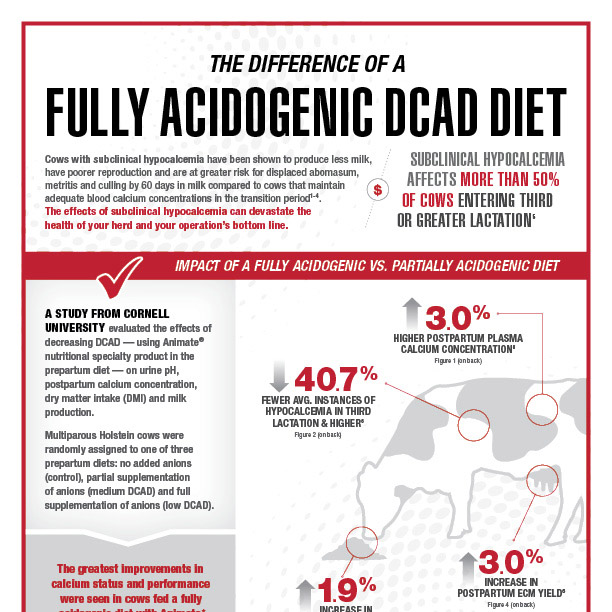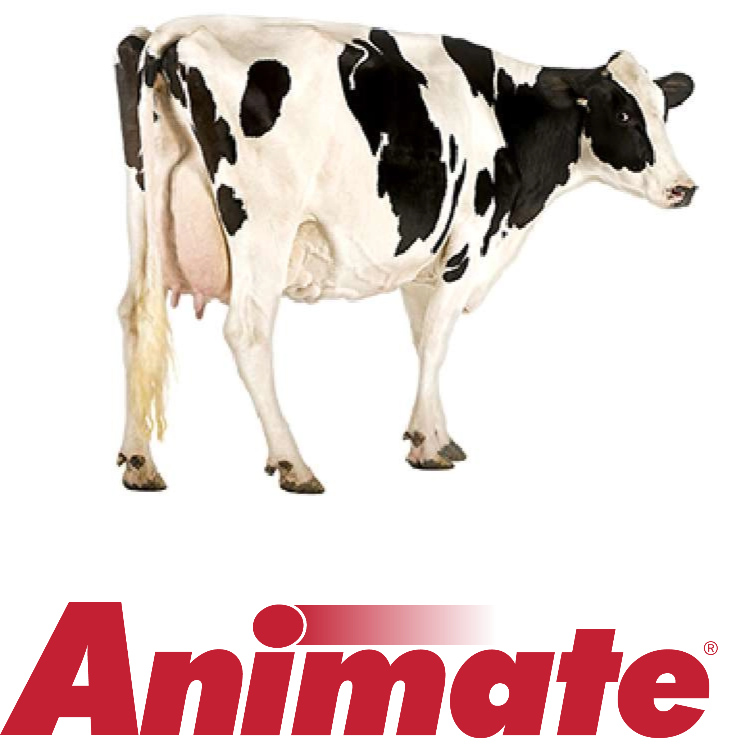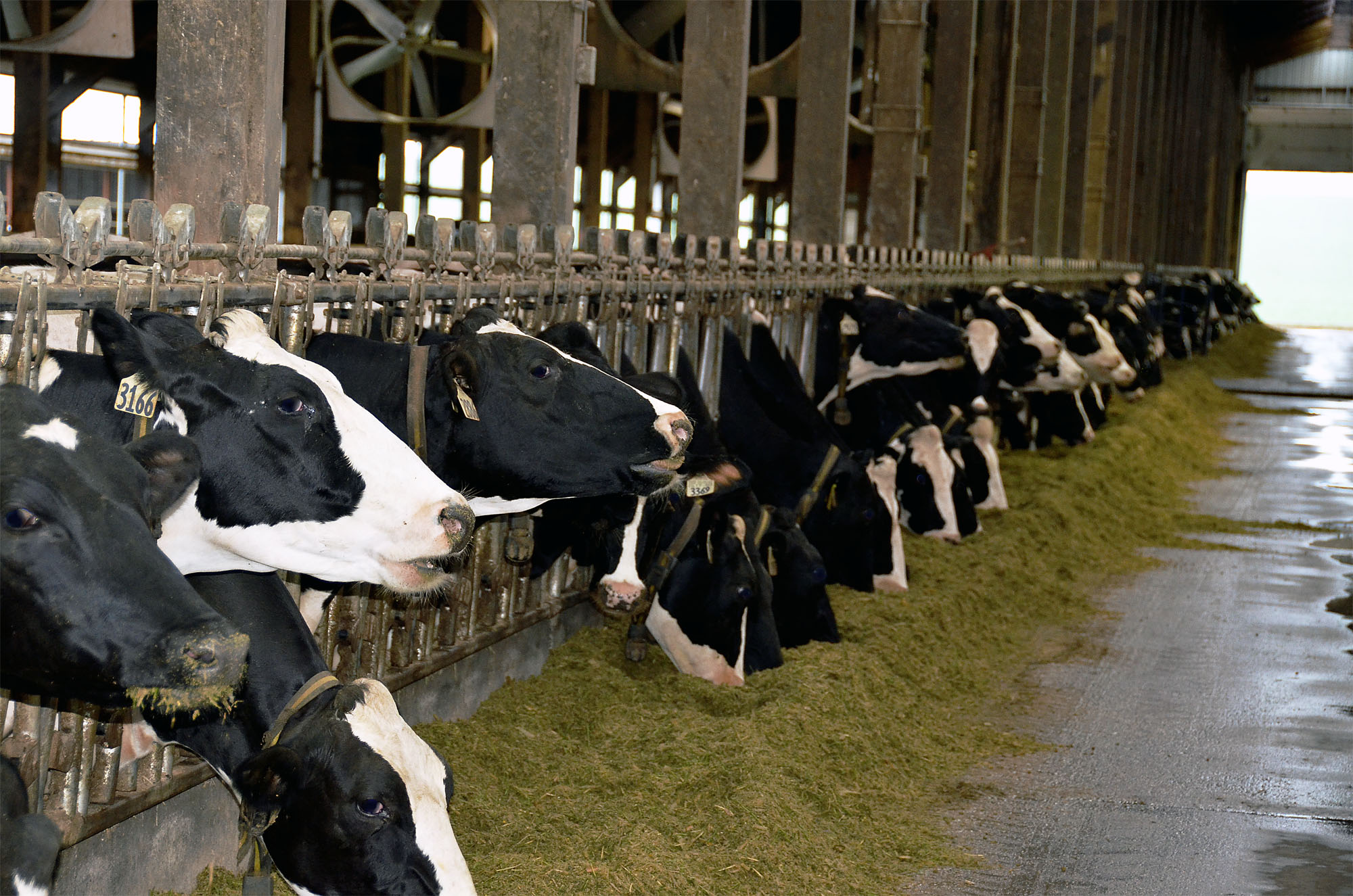
Hypocalcemia affects more than 50% of all dairy cows, leading to less milk production and a greater risk of negative health outcomes (Reinhardt et al. 2011. The Vet J. 188:122-124). All prepartum dairy cows are susceptible to hypocalcemia due to the rapid increase in calcium requirements to support colostrum and milk production.
Proper nutrition and management during the prepartum period can significantly reduce the negative impacts that hypocalcemia has on the cow and dairy farm profitability. Implementing a prepartum, negative Dietary Cation-Anion Difference (DCAD) program helps maintain postpartum blood calcium status and can help reduce postpartum health events, which may lead to better dry matter intake (DMI), milk yield and reproductive performance.
Animate® nutritional specialty product delivers the minerals needed to balance a proper DCAD diet, which helps to optimize calcium metabolism in the transition dairy cow. Our targeted program includes mineral and management recommendations backed by Phibro expert support to help implement and manage a successful DCAD program.
Here’s how it works:
1. Get in Range
Phibro transition cow studies have demonstrated that feeding a fully acidogenic diet resulting in urine pH from 5.5 to 6.0 is beneficial for maintaining an optimal calcium balance and a fast recovery of calcium status following calving. This may lead to greater postpartum DMI, higher milk yield and fewer negative health events. This is in contrast with feeding a partially acidogenic diet, which can lead to inconsistent results and provide fewer benefits for the cow.
As urine pH decreases, there is an accompanying increase in urine calcium excretion. The increased excretion of calcium through urine results in changes in calcium metabolism that benefit the periparturient dairy cow. Collectively, these changes working together enhance calcium flux and are the reasons for the positive benefits to calcium metabolism when cows are fed a fully acidogenic diet.
2. Make Every Bite Count
Feeding a fully acidogenic diet with high dietary calcium can help to defend against hypocalcemia. The concept of formulating an acidogenic diet is based on the strong ion difference theory — feeding more anions (chloride and sulfur) compared to cations (potassium and sodium) to shift the acid-base status of the cow, which induces a state of compensated metabolic acidosis. This helps decrease the pH level in both blood and urine, increasing calcium flux (exchange of calcium within the body), which can help lead to greater DMI postpartum.
To formulate the diet, the following guidelines are recommended (based on a DMI of 28.0 lbs):
- Calcium: >180 g/day (no less than 1.42% DM)
- Phosphorus: 26-53 g/day (0.21-0.42% DM)
- Potassium: 120-180 g/day (1.00-1.50% DM)
- Magnesium: 57-64 g/day (0.45-0.50% DM)
- Sodium: 13-26 g/day (0.10-0.20% DM)
- Chloride: 102-127 g/day (0.80-1.00% DM)
- Sulfur: 51-60 g/day (0.40-0.47% DM)
3. Track the Trends
An important step to ensuring a DCAD program is being fed correctly and delivering the expected results is to track herd trends through testing, record-keeping and analysis. For example, periodically conducting blood calcium analysis can determine if blood calcium status is recovering at a satisfactory rate post calving.
The Phibro team of Dairy Advisors is available to work closely with nutritionists, veterinarians, herd managers and dairy producers to provide them with the knowledge, tools, analysis and recommendations to maximize their investment in a prepartum program.
In addition, the use of the Animate App allows users to track on-farm data to ensure their prepartum DCAD program is on track and delivering the expected benefits. The tool is designed to help easily track herd trends and monitor critical factors that impact transition cow performance, including ration DCAD, urine pH, bunk space, stocking density, days in the close-up period and other key parameters. The Animate App is available for download on iOS and Android systems.
To learn how Animate® nutritional specialty product can support a proper DCAD diet, contact your local Phibro Dairy Advisor
AN065323GLB ©2023 Phibro Animal Health Corporation. Phibro, Phibro logo design, Healthy Animals. Healthy Food. Healthy World. and Animate are trademarks owned by or licensed to Phibro Animal Health Corporation or its affiliates.
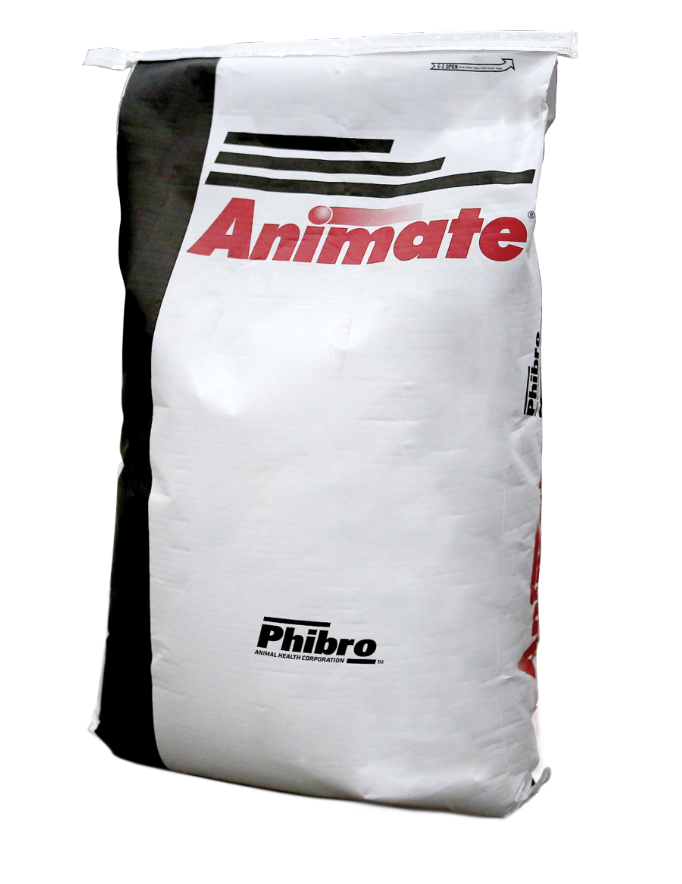
Start with the Right Anion Source
Animate® nutritional specialty product is a unique and patented anionic mineral that has been shown to help keep transition cows healthy and productive.
Learn about Animate







